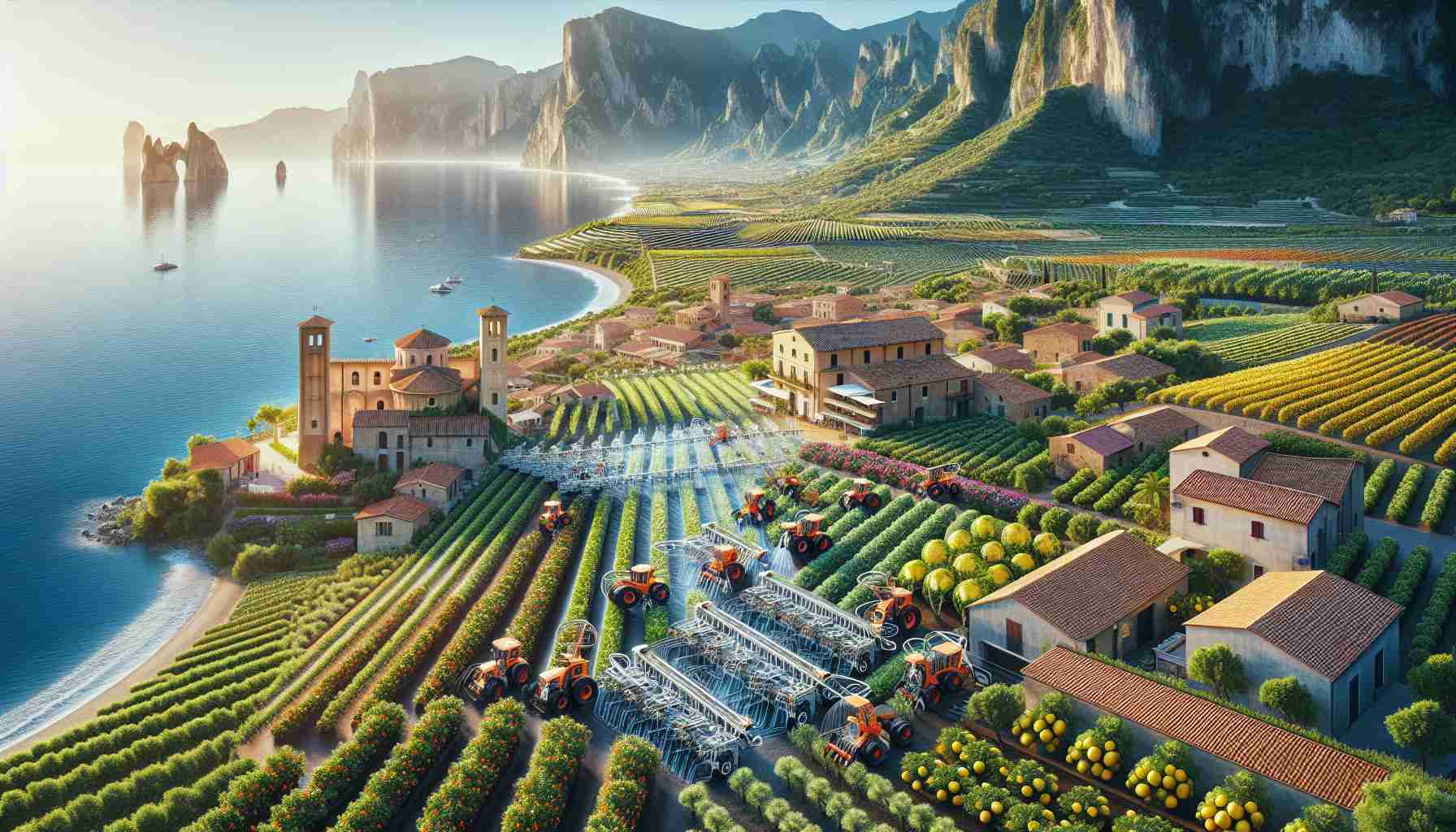In Italy’s picturesque region of Campania, renowned for its contributions to the Mediterranean diet, technology is intertwining with tradition to usher in a new era for agriculture. Emblematic of this fusion are three cherished products: arugula, tomato, and buffalo mozzarella. These staples, integral to dishes like the beloved Caprese salad, have become showcases for groundbreaking innovations.
Agriculture meets AI – In Naples, the esteemed Agritech research hub leads the charge in agricultural research. The organization, along with CREA—Italy’s agricultural research center under the Ministry of Agricultural Policies—pioneers advancements that exceed a purely academic scope. Notably, CREA has sent samples into space, including extra-virgin olive oil, symbolizing the high-tech ambition stemming from the South.
The region, especially since the pandemic and ongoing international conflicts, has gained prominence in Europe’s agricultural sector. This prominence is not solely due to an abundance of quality products but due to the implementation of intelligent systems that draw from the region’s rich biodiversity and technological prowess.
Mozzarella meets Machine Learning – Proactive against counterfeiting, the Mozzarella di Bufala Campana Dop Consortium has employed artificial intelligence, embodied by a virtual ‘bodyguard’ called Nina. This innovation extends beyond mere protection of a revered industry embodying a €530 million turnover; it sets a precedent for the entire agricultural tech ecosystem.
Scientific Strides in Horticulture – Campania is also advancing in horticulture and nursery gardening. According to Catello Pane, a researcher at CREA’s research center in Pontecagnano, technology such as sensors and AI is transforming farm management. Precision-based systems assist farmers in applying the correct amount of water, fertilizers, and pesticides—fueling both environmental and economic benefits.
Two projects, PoFacs and Agridigit-Agrofiliere, exemplify innovation in the sector, employing optoelectronic tools to “see” inside plants for better disease and pest management.
Genetics and the Future of Tomato Cultivation – Further, CREA’s projects delve into advanced genetics, aiming to create tomato strains resistant to the deadly parasite orobanche. This highlights a commitment to preserving and enhancing the region’s agricultural bounty.
As a testament to the region’s growth, investment in smart agriculture has soared, with market value expanding from €100 million in 2017 to a remarkable €2.5 billion in 2023. These developments mark Campania not merely as a cradle of culinary extravagance but as the heartbeat of high-tech agriculture supporting Italy’s gastronomic heritage.
Important Questions and Answers:
Q: What role does artificial intelligence (AI) play in Campania’s agriculture?
A: AI in Campania’s agriculture plays a crucial role in various aspects, such as protecting the Mozzarella di Bufala Campana Dop from counterfeiting with a virtual ‘bodyguard’ named Nina, and in farm management where it helps apply precise amounts of water, fertilizers, and pesticides.
Q: How has investment in smart agriculture in Campania changed in recent years?
A: Investment in smart agriculture in Campania has grown significantly, with its market value expanding from €100 million in 2017 to €2.5 billion in 2023, indicating strong growth in the adoption of high-tech solutions for agriculture.
Key Challenges or Controversies:
– Maintaining the balance between modernization and preserving traditional agricultural practices.
– Addressing data privacy and security concerns associated with AI and other technological systems in agriculture.
Advantages:
– Increased efficiency and productivity in farming practices.
– Environmental sustainability through more precise use of resources such as water and pesticides.
– Enhanced food quality and safety due to improved disease and pest management.
Disadvantages:
– Potential for job displacement as automation and AI may reduce the need for human labor to some extent.
– High costs of implementing and maintaining sophisticated technologies could be a barrier for smaller farms or developing regions.
For information related to high-tech agriculture advancements and initiatives in Italy, one may refer to CREA, Italy’s agricultural research center. For insights into broader European agricultural technology trends, networks like the European Commission may offer relevant information and policies. Please ensure that the URL is valid before visiting the site.

